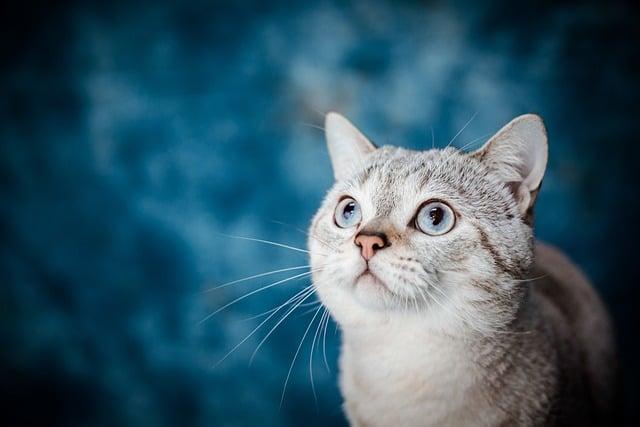Can Pets Understand Their Own Mortality

In the heartwarming world of pet companionship, our furry, feathered, and scaly friends often seem to possess an uncanny ability to tune into our emotions, offering comfort and joy when we need it most. Yet, as we navigate the journey of life alongside them, a poignant question occasionally arises: do our pets understand their own mortality? This query, nestled at the intersection of science and sentiment, invites us to explore the cognitive and emotional depths of the animals we hold dear. In this article, we’ll delve into current research, anecdotal evidence, and expert opinions to uncover what, if anything, our pets comprehend about the concept of life and its inevitable conclusion. Join us as we embark on this exploration, shedding light on the profound bond between humans and their beloved animal companions.
Understanding Pet Perception of Life and Death
Pets, much like humans, experience the world through a complex tapestry of senses and instincts. While it’s clear that animals can feel pain and express joy, understanding their grasp of life and death is more nuanced. Animals often display behaviors that suggest an awareness of loss. For instance, dogs have been observed showing signs of mourning when a companion animal or human passes away. Cats might exhibit changes in behavior, such as searching for a missing companion or spending more time alone. These actions indicate that pets can perceive the absence and perhaps understand the concept of something being irrevocably gone.
However, when it comes to self-awareness of mortality, the evidence is more speculative. Unlike humans, pets don’t seem to ruminate on the future or their own inevitable end. They tend to live in the moment, driven by instincts and immediate needs. This is not to say they lack depth; rather, their experience of life is different. Animals seem to focus on survival, companionship, and daily routines, rather than abstract concepts like their own death. While they might not ponder mortality, their responses to the environment and changes within it show a rich emotional life that parallels, in some ways, our own understanding of existence.

Exploring Animal Cognition and Awareness
When we consider the emotional lives of our beloved pets, the question of whether they possess an awareness of their own mortality is both intriguing and profound. While it is difficult to ascertain the exact depth of their understanding, there are several indicators that suggest animals have a complex cognitive landscape. Studies on animal behavior have shown that pets exhibit signs of stress and anxiety in situations associated with death, such as the loss of a companion animal or a beloved human. This could imply a recognition of absence and a basic understanding of life and death cycles.
- Elephants and grief: Known for their complex social structures, elephants have been observed engaging in behaviors akin to mourning, such as touching the bones of deceased family members.
- Dogs and separation anxiety: Dogs often display behaviors that suggest a form of awareness about the permanence of death, especially after losing a close companion.
- Parrots and emotional bonds: These intelligent birds have been known to exhibit signs of distress when a bonded partner or human passes away, indicating a deep emotional connection.
While it may be a stretch to claim pets have a conscious understanding of their own mortality akin to humans, these behaviors certainly suggest that they possess an awareness of death that goes beyond mere instinct. The exploration of animal cognition continues to reveal the remarkable capacities of our furry, feathered, and scaly friends, offering us a glimpse into their fascinating world.

How Pets React to Loss and Grief
When it comes to the loss of a companion, pets can exhibit behaviors that suggest they are processing their own form of grief. Though they might not understand death in the same way humans do, their reactions can be surprisingly profound. Dogs, for instance, may become lethargic, lose interest in activities they once enjoyed, or display changes in appetite. Cats might seek solitude, hiding in unusual places, or conversely, become more clingy and vocal. Birds and small mammals can also show signs of distress, such as plucking feathers or neglecting grooming.
- Changes in behavior and routine
- Altered eating and sleeping patterns
- Increased vocalizations or withdrawal
- Heightened need for comfort and reassurance
Understanding these signals can help pet owners provide the support their animals need during such difficult times. Offering extra affection, maintaining a consistent routine, and providing engaging activities can help ease their transition through grief. While the emotional depth of animals remains a mystery, their behaviors highlight an innate capacity to feel loss and seek comfort, reflecting a shared journey of love and connection with their human companions.

Guiding Your Pet Through the Journey of Aging
As our beloved companions age, it becomes crucial to provide them with the support they need to navigate the later stages of life gracefully. While pets may not possess the human-like understanding of mortality, they are incredibly perceptive to changes in their environment and their own bodies. Recognizing signs of aging in pets, such as decreased energy levels or altered behavior, is the first step in ensuring their comfort and well-being.
To assist your pet in this journey, consider these approaches:
- Regular Health Check-ups: Schedule frequent vet visits to monitor health changes and address any emerging issues promptly.
- Comfortable Living Space: Make their environment more accessible, with cozy bedding and easy access to food and water.
- Appropriate Nutrition: Adjust their diet to meet the changing needs of an aging body, focusing on easily digestible and nutrient-rich foods.
- Mental Stimulation: Engage them with gentle play or interactive toys to keep their minds active and spirits high.
- Emotional Support: Spend quality time with your pet, providing reassurance and love to help them feel secure and cherished.
By taking these steps, you can enhance the quality of life for your pet, making their golden years as joyful and fulfilling as possible.
Wrapping Up
while the question of whether pets can truly understand their own mortality remains largely unanswered, it is clear that animals exhibit a range of behaviors and emotions that suggest a complex awareness of life and death. Scientific studies and anecdotal evidence both point to the possibility that pets may sense changes in their own health and the passing of other animals, even if they don’t conceptualize mortality in the same way humans do. As pet owners, it’s important to provide our furry companions with love, comfort, and care throughout their lives, recognizing that their emotional and physical well-being is deeply intertwined with our own. By continuing to explore and understand the inner worlds of our pets, we not only enhance their quality of life but also enrich our own human experience. Whether or not pets understand mortality, the bonds we share with them transcend the need for such understanding, rooted instead in mutual affection and companionship.



